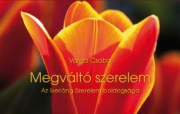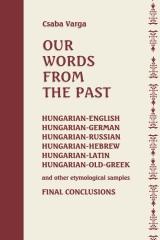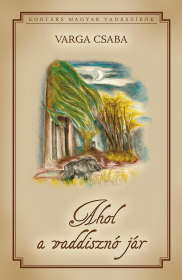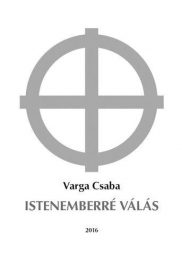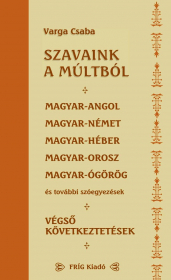
Varga Csaba : The english language from the hungarian view
Authored by Mr Csaba Varga The research to find the proto-nostratic language of Eurasia lately brought more and more results. One of those discoveries is the recognition that a big part of the English vocabulary - as presented in this book - has much more similarity to the Hungarian than we thought before. These similarities are touching the basic elements of both languages. An important detail of this recognition is that we do not have to move people forth and back all over the continents to explain "takeover"- words. The common features are the legacy of an archaic root-language, once spoken by everybody in Eurasia. The recognition of so many common words could be quite useful for Hungarians learning English and vice versa.About the author:Mathematic teacher, world-wide known director of animation-films. Researcher of history of writing and language. Author of the revolutionary book: "Signs Letters Alphabet" and of the books "The Living Language of the Stone Age", "Our Words from the
Hasonló könyvek
Our words from the past
Szerző: Varga Csaba
Authored by Mr Csaba Varga Etymological comparison of word-samples out of different languages. "And the whole earth was of one language and of one speech". (Genesis I.11.1) Where did this language dev
Ahol a vaddisznó jár
Szerző: Varga Csaba
Varga Csaba mindenekelőtt élményvadász. És az élmények előbb-utóbb kikövetelik maguknak, hogy rögzítsék, leírják, tovább adják őket. A leírt élmények (vallomások, visszaemlékez�
Fénykor víziók
Szerző: Varga Csaba
A Fénykor víziók az író 37. megjelent kötete. Ebben egyre teljesebben fedezhető fel és érthető meg a szinte még elképzelhetetlen Új Lélek és Új Teremtés valóságmisztériuma. E kön
Istenemberré válás
Szerző: Varga Csaba
A ma élő ember számtalan homályos kép, árnyékkép, hamis kép, vagy csak elmosódott kép között vergődik. Ezek a képtorzulások egyaránt élnek saját elméjében, a manipulált nyilv
Szavaink a múltból
Szerző: Varga Csaba
Észrevette-e már az olvasó, hogy pl. az angol loose, shawl, német schwirren, kecsua kishqui, orosz szémecsko azonos a magyar laza, sál, surran, keskeny és szemecske szóval? E könyv 2400, tisz
